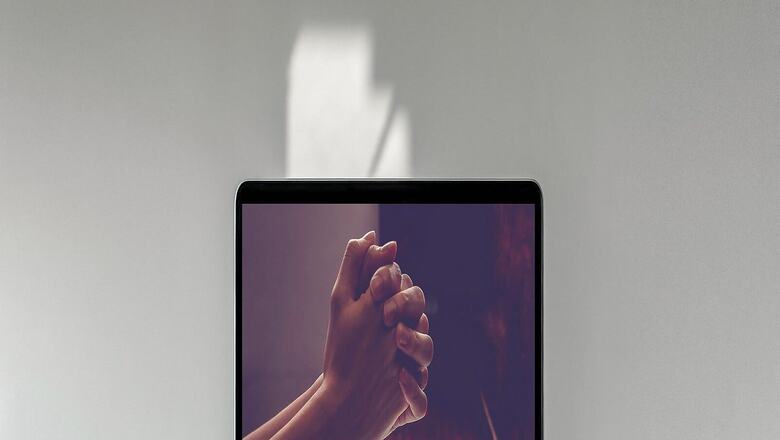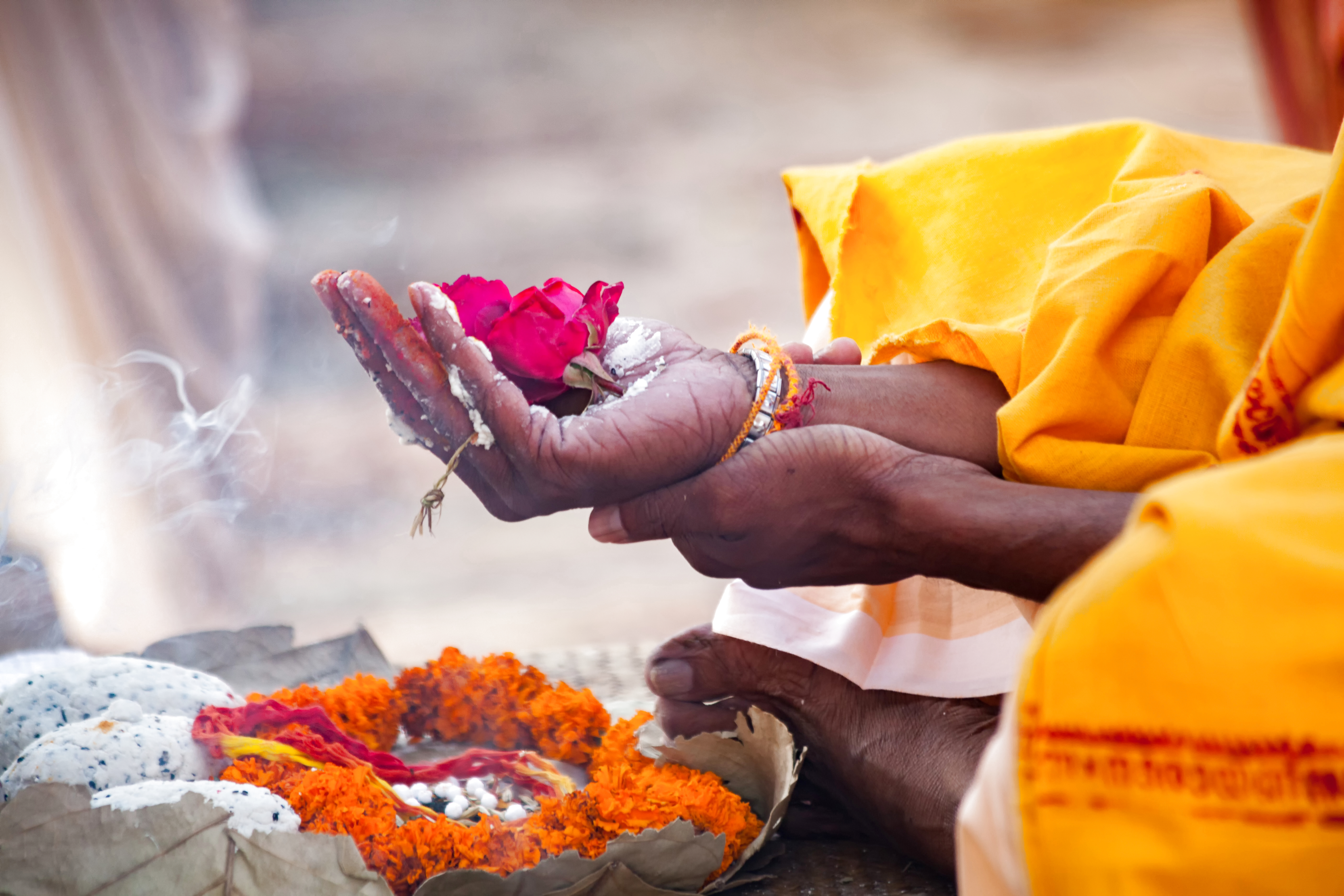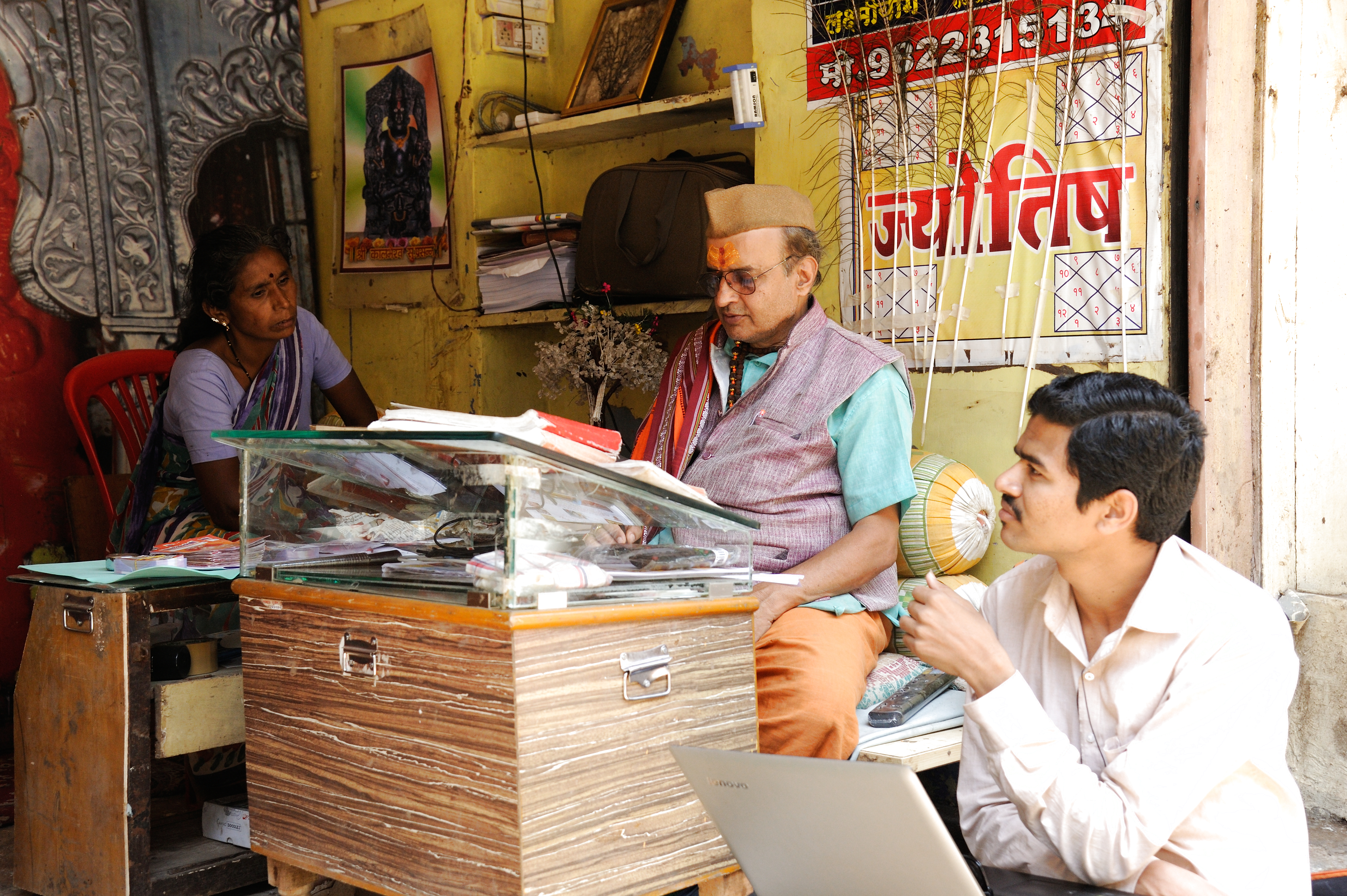
views
Nearly a month after the imposition of nationwide lockdown, Brajesh Pandey was scurrying between a new Wi-Fi internet connection, a borrowed laptop, endless phone calls and requests for ways to fight Covid-19. He is not a doctor.
Pandey, 29, is a Hindu priest in Lucknow.
News18 spoke to representatives from different religions to understand how people viewed religion during the pandemic. We also spoke to astrologers to gauge how distress and a troubled present propelled curiosity for the future.
“People were extremely scared. They could not call doctors till there was an ailment. They could not visit temples. So they turned to religion and I am the route,” Pandey told News18.
Pandey had never needed a Wi-Fi connection or a laptop before. He stays alone in a single-room apartment in the capital of Uttar Pradesh and earns as every other ‘pandit’ does — pujas.
However, these prayer sessions, just like the times he was operating in, were far from the ordinary. Pandey was now hosting online puja sessions, was paid over UPI and invites meant Zoom links.
This was not the only change. The real shift was in demands. People were asking for prayers that could protect them from coronavirus.
“I would get at least a dozen calls every day where people would ask me if I could give them solutions for Covid-19. Some asked for prayers, others asked for rituals. What should we do so that we don’t get infected, was a regular. There was intense fear,” said Pandey.

Poojas shifted online, priests were paid over UPI and invites meant Zoom links. (Shutterstock)
Did he tell them about any rituals? Pandey laughed and continued.
“There are no pujas for Covid-19. No rituals against a virus. But I did host tens of prayer sessions in the name of Covid-19, stating that these are for providing hope, which, quite frankly, they were. Why do people go to temples? To derive strength. These sessions were doing the same,” he said.
Pandey, a seasoned priest, pointed in a direction that’s well documented. For believers, one of the crucial functions of religion is in the realm of the therapeutic. They turn to religion in times of affliction and grief with marked intensity. Much beyond social distancing norms and curfews.
Finding peace with Allah
For Sabina Khatun, religion transcended beyond the physical.
A study titled ‘The Link Between COVID-19, Anxiety, and Religious Beliefs in the United States and the United Kingdom,’ published in Journal of Religion and Health, found that “In response to the coronavirus threat, strong believers enhanced religious beliefs further while non-believers appeared as being even more skeptic about religion.”
Sabina Khatun, 30, from Kolkata falls in the former category. She told News18 that her faith grew stronger during the pandemic and helped her get rid of anxiety.
After being infected with Covid-19, she felt that the isolation helped her build a sturdier connect to Allah. She, however, does not pray because it is her religious duty, but because she believes that praying is a cornerstone of spirituality.
“I feel peaceful after I share my burdens and anxieties with Allah. Certain lines in the Quran have the power to make the believer overcome all kinds of troubles including illness. It is said that if one recites “La Hawla Wa La Quwwata illa BillAhil Aliyyil Azeem (There is no power and no strength except with Allah) 99 times, even the least important problems vanish. My family has been doing this over the past one year and our prayers have been answered.”
Mir Murtuza Ali Moosvi, the Mutawalli of BaadShahi Ashoorkhana in Hyderabad, firmly believes that this time around, ‘dua’ has won over ‘dawa’.
“I have seen people who lost their loved ones even after spending lakhs on treatment. We all know now that even if we are vaccinated, we can still have Covid-19. That is why, more and more people are turning to the Almighty to save themselves from this scourge which is proving to be too powerful day by day,” he said.
Mir’s family has been the custodian of the 425-year-old Ashoorkhana for 12 generations now. “Over the past one-and-a-half years, there has been an increase in the number of people attending our weekly congregations. We take all measures to maintain Covid protocols on these days,” he said.
The followers of the Shia sect, explained Mir, hold prayers called ‘Dua-e-Sehat’.
“Earlier, the requests for these prayers used to come from only those who were going for surgeries or any medical procedures. But now, the requests come from people who want to pray for better health of every human being in the face of this pandemic,” he added.
Haseeb Jafferi, a descendant of Salabath Jung from the Nizam family and a heritage expert, made an interesting observation on how technology became a platform to offer prayers when physical presence was not possible.
“On the third day after a person’s demise, family members divide the Quran among themselves and offer prayers for the deceased. After my mother passed away last year, we divided the chapters through WhatsApp groups and everyone read their part.”
Churches stepped in
During the second wave of the covid-19 pandemic, Renelle Snelleksz, a Pune-based Dance Movement Therapist and owner of a wedding gown label found herself in her worst nightmare. Her elderly parents, who were alone in Kolkata, were infected while she was in Pune in the last few months of her pregnancy.
“I was constantly trying to coordinate from Pune for my parents’ medicines, food, and caretaking. My mom was critical and was on oxygen support at home; it was a heavily stressful time for us,” she recalled. Snelleksz said that during this time, her only solace was to know that there were people praying for her parents’ wellbeing every single day.
During the pandemic, volunteers from the Highway Church community formed prayer chains. They would draw up lists of those who were critically ill and required prayers. These lists included people from the church community as well as strangers. The volunteers would take turns praying for those on the list throughout the week.
“On Saturdays, we had (and continue to have) a 24-hour prayer chain, during which every hour of the day was taken up by volunteers to pray from the critically ill, grieving families, as well as those suffering from mental health issues,” added Snelleksz.
The pandemic also changed the way people prayed. Previously, praying was either a solitary act or a communal one. However, now it has transcended into a global act where people from across the world can attend the same service together, as they are being conducted online.
Fr Rosario Pushparaj of the St Francis Xavier Chapel, Colaba, explained that while online services became common during the pandemic, that was not the only form of worship that people opted for.
“Many organised their services at home, and those who couldn’t participate during the online service simply went to YouTube and watched it. However, ever since the lockdown, there has been a strong longing among people to return to the chapel,” said Fr Pushparaj.
During the pandemic, several churches have provided spiritual, financial and even medical assistance. However, a health crisis of the magnitude we have witnessed made many churches step up and do more.
Fr Leon Cruz Ratinam, the Director of Don Bosco Youth Services, Matunga, pointed out, “Counselling services were offered by the Church in different places. The Church has also organized many online programmes by experts to help people deal with depression and anxiety.”
“For the youth, we had organized Online Programmes to deal with this situation. The “Health Outreach Team” of the Archdiocese of Bombay created dedicated Covid Helplines, and they, along with few youths from the Salesian Youth Movement, were attending to the calls related to COVID,” he added.
Seeking answers through astrology
“My phone doesn’t stop ringing,” said a Patna-based astrologer Ashu Babu.
The pandemic has propelled a newfound belief in astrology, tarot card reading and spiritual healing.
“I am constantly bombarded with calls from students and working officials. The work-from-home routine seems to have taken a heavy toll on their working or studying patterns. Yesterday, a 25-year-old client asked me if I could prescribe him any stone that would increase his concentration power as he had been making mistakes at work and feared missing promotion,” said Ashu Babu.

The pandemic has propelled a newfound belief in astrology, tarot card reading and spiritual healing. (Shutterstock)
Another question that frequented him was about divorces. He attributed this to the deteriorating mental health of his clients who have seen too much negativity in the past year.
Gurgaon-based tarot card reader, Sakshi Singhal conducted healing sessions for many Covid-19 victims, free of cost. With over 200 such sessions including reiki healing, among other methods, she has been successful in curing many severely infected Covid victims.
“I deal with Covid patients as my clients regularly. Loss of hair as a post covid symptom has left many of them immensely worried. ‘Will I regain my lost hair?’ is the most common question that I have faced in the last few months. The growing bald patches, receding hairline have deeply impacted the self-esteem of these people and they are desperately looking for some hope, some positivity by resorting to astrology and spiritual healing,” said Sakshi.
She also spoke about the concerns among many of her clients who have talked about experiencing a foul smell in their household, much like that of a dead body lying in front after recovering from Covid-19. Such frightening experiences and their long-lasting impact have been the core of all her sessions.
This story is Part 3 of a 4-Part series on Pandemic Fallout. Click here to read Part 1 on Covid-19 and its toll on mental health and here for Part 2 on how Covid has changed career paths.
Read all the Latest News , Breaking News and IPL 2022 Live Updates here.




















Comments
0 comment